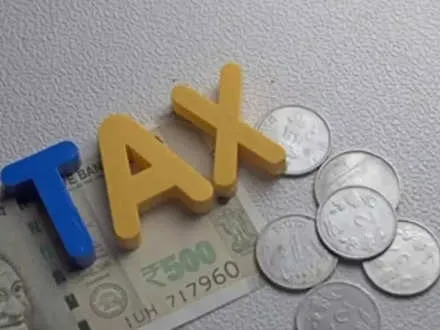Ghana is in dire need of unconditioned revenue to keep its economy afloat and tax income is its surest bet. As talks with the International Monetary Fund drags, the state tax collector Ghana Revenue Authority (GRA) is on an unconventional drive to shore up its domestic revenue to underpin the nation’s fiscal revival efforts and that is to be done through the recovery back taxes that it claimed are owed to the state by some multinational companies in the country.
The West African nation is currently negotiating with the IMF for a bailout and is under pressure to inspire confidence in a sustainable economic future, the country is ramping up tax revenue collection, but the modus operandi could leave investors with a bitter taste.
Sadly however, and relying upon external agencies as auditors, the GRA’s approach, in terms of receiving demands of back taxes outside of the contracts they hold with the country, is a matter of concern in the broader interest of future foreign direct investments.
According to the revenue mobilization agency, four multinational firms operating in the oil, telecoms and mining sectors have failed to clear their back taxes running into some millions of dollars to government, a claim they have unanimously rejected.
Chasing tax defaulters is not a bad thing per se, safe to say it is cracking the whip, but how the GRA handles such situations, especially those with binding contractual obligations for both parties, will either make or break the nation’s aspiration of becoming the investments hub of the sub-region.
This back tax melee comes on the heels of an equally unpopular approach to domestic revenue collection whereby the GRA stationed its tax officers at certain shops across the country to track the cash inflows and determine the tax payable to the state, an action that triggered the closure of shops in some parts of the country.
The desperation is glaring with GRA’s unconventional tactics to raise revenue but any attempt to milk the private sector in the guise of back tax threatens Ghana’s investment hub agenda. Ghanaians should be concerned about investment attractiveness—the ability of the economy to attract more investments—in this time of economic woes.
Obviously, going tough on revenue mobilization is what everyone, including the external community, will expect to see in any ailing economy, but before such a name-and-shame exercise, one would expect that the tax collector would act diligently and without fault.
For instance, one of the four affected companies, Tullow Ghana Limited, from whom the GRA is demanding some US$387 million plus penalties, considers the action a total breach of its rights under its Petroleum Agreements, and has resorted to international arbitration to bring certainty to the issue in the best interest of all stakeholders.
Quite interestingly too, after notifying Africa’s largest wireless carrier, MTN, of evading payment of back taxes totalling US$672m, the state tax agency has pulled out that demand.
The reason for the reversal we are told is to allow for reassessment of the figures that they [the GRA] had earlier projected. If that is the situation, then it begs the question of how similar anomalies could not have arisen in the case of the remaining three.
Ghana should be worried about how these tussles could affect the attractiveness of the Ghanaian economy to foreign investments because disregarding contractual law and inventing tax claims to boost the country’s 2023 forecasts against serious international businesses is not the answer.
Although other tax experts have argued in favour of the back tax decision—which is understandable given the economic circumstances, one thing they have not failed to admit is the way the matter should be handled, especially when they cited companies have either rebuffed the claims of GRA or identified some anomalies in the figure that they have churned out. Instead of showing that there is a working tax regime, it could also expose lapses in tax administration which could drive investment away, erode confidence and make the problem even worse.
If GRA’s tax demands to major players in Ghana’s oil and gas firms are not amicably resolved, there is a significant threat of Ghana not attracting investors in future. Ghana must show the global investor community that no matter the current economic situation, the nation will always honour its contracts and that it is a safe haven for investors.
Ghanaians stand to suffer the most because this type of short-term behaviour has a ripple effect. The four affected multinationals are also among the country’s big employers, offering jobs and livelihood opportunities to several thousands of Ghanaians aside from supporting the nation’s socio-economic development in diverse ways.
Ghanaians are already reeling under the harsh economic conditions that have been compounded by the government’s domestic debt exchange programme where institutional and individual bondholders are being asked to defer receipt of their investments by at most another three years.
Desperate times call for desperate actions they say, but there is also a sound reason behind the “carrot and stick approach” in luring foreign direct investments into any economy and the GRA must go about its tax collection obligation in such a manner that the gains that have been made in Ghana’s investment landscape are undone.
Writer: Patrick Paintsil


Comments are closed.